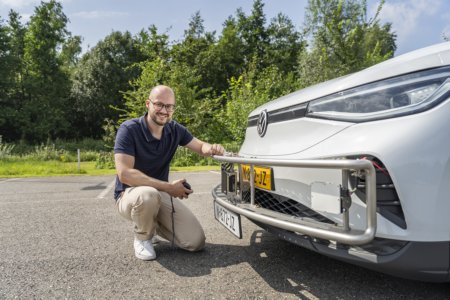The Design of Electrical Engineering Systems (DEES) program is one of the certified two-year post-masters Engineering Doctorate (EngD) programs offered by TU/e. The DEES program trains EngD trainees in specifying, designing, building, testing and evaluating complex multidisciplinary systems in the sector of electrical engineering. More recently, we have also taken the trainees from applied physics on board, and we have welcomed the occasional trainee from mechanical engineering. Our trainees develop an in-depth understanding of the technical, stakeholder and user requirements so as to bridge the gap between state-of the art technology and commercial (or societal) applications. Upon successful completion the graduate is awarded the EngD (Engineering Doctorate) degree.
Industry collaboration and program structure
In the DEES program one of our research groups draws up a contract for a specific project with an industrial partner (or client). As and when that specific project has been formulated and funding is in place, a vacancy is posted on https://jobs.tue.nl/en/vacancies.html. If your application for that post is successful, you, as an EngD trainee, will either be hired as a TU/e employee in that research group, or as a company EngD trainee, employed by the industrial partner. As a DEES trainee you will carry out a 15-month industrial design/development project that runs concurrently with a tailor-made 9-month curricular training program, consisting of mandatory courses, electives and (industrial) projects.

Diverse application areas
Our trainees work on projects in such diverse fields as healthcare systems, well-being devices, wireless and electro-optical communication, embedded software, integrated (opto-)electronic circuits, flexible electronics, optical and electromagnetic sensing, molecular biosensing, AI-assisted image analysis, pulsed-power plasma generation and plasma cleaning, EV charging, electric motor design, active power filters, nano-scale wear particle generation, synthetic polycrystalline microstructure generation, automotive radar systems, antenna array design, material characterization, electromagnetic compatibility, and control systems.
Supervision and quality assurance
For each individual project, a thesis evaluation committee (TEC) will be appointed. The TEC is composed of academic experts, and (at least) one representative from the industrial partner. Upon completion of the initial stage of the project, the trainee will report to the TEC on the progress and outlook. In a commitment to quality, the TEC will provide detailed constructive feedback to the trainee.
More information
Learn more about this program and how to apply by visiting the Design of Electrical Engineering Systems website from TU/e.